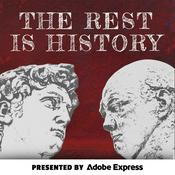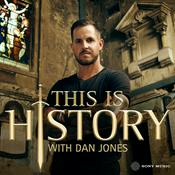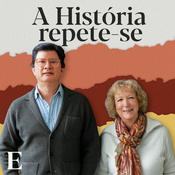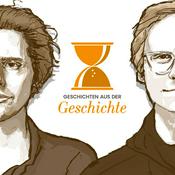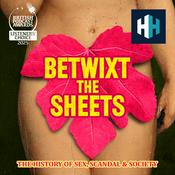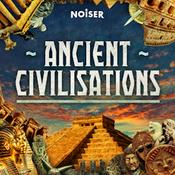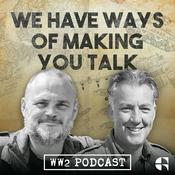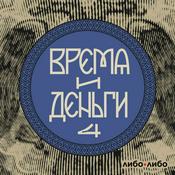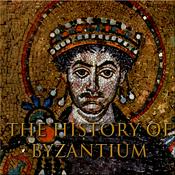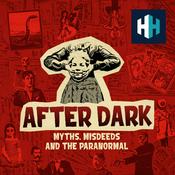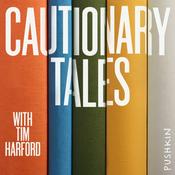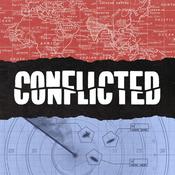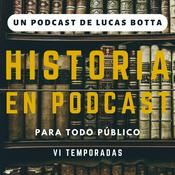10 episódios

Living
29/11/2013 | 13min
Andrew Dilnot, chair of the UK Statistics Authority, tells the story of a transformation in personal life in Britain, through the numbers that capture change on the grand scale.He delves into the data for the big patterns and trends in history, finding new ways of thinking about the whole shape of the population - the balance between adults and children, for example, or the shifting shape of what we do with our lives, from infancy to retirement and death. He seeks answers in history to some of the problems that perplex us now, such as how badly austerity has bitten or the paradox of why no-one seems able to afford a house but so many people own one. And he tells these stories not just with data, but through people and the real experiences that bring the numbers to life.In the search for data to measure how we've changed, the programme counts rotten teeth and adds up what people ate, what they own and throw away. What did we earn through the centuries, how do we know, and what could we do with it? What was our health like, or our homes, our jobs or education? What was the status and experience of women? And how has it all changed?Each of these ten programmes takes one theme, to explore how far we have made progress, and why it might continue, or falter.10. Living Is the history of the economic struggle for survival over, as Keynes once said it would be? If so, has it been replaced with what he said would be a much harder problem - not working out how to survive, but working out how to live? Some think we will only do this when we balance our expectations with the sustainability of the planet; others that it has become a moral problem, not an economic one.Producer: Michael Blastland A Whistledown production for BBC Radio 4.

Women
28/11/2013 | 14min
Andrew Dilnot, chair of the UK Statistics Authority, tells the story of a transformation in personal life in Britain, through the numbers that capture change on the grand scale.He delves into the data for the big patterns and trends in history, finding new ways of thinking about the whole shape of the population - the balance between adults and children, for example, or the shifting shape of what we do with our lives, from infancy to retirement and death. He seeks answers in history to some of the problems that perplex us now, such as how badly austerity has bitten or the paradox of why no-one seems able to afford a house but so many people own one. And he tells these stories not just with data, but through people and the real experiences that bring the numbers to life.In the search for data to measure how we've changed, the programme counts rotten teeth and adds up what people ate, what they own and throw away. What did we earn through the centuries, how do we know, and what could we do with it? What was our health like, or our homes, our jobs or education? What was the status and experience of women? And how has it all changed?Each of these ten programmes takes one theme, to explore how far we have made progress, and why it might continue, or falter.9. Women The changes in women's lives have been vast, and many of them have come in a blink at the end of recorded history. But the patterns of change in the data can be found repeated as long ago as the Black Death. What were they, and how do they help explain the way women's lives changed?Producer: Michael Blastland A Whistledown production for BBC Radio 4.

Old Age
27/11/2013 | 13min
Andrew Dilnot, chair of the UK Statistics Authority, tells the story of a transformation in personal life in Britain, through the numbers that capture change on the grand scale.He delves into the data for the big patterns and trends in history, finding new ways of thinking about the whole shape of the population - the balance between adults and children, for example, or the shifting shape of what we do with our lives, from infancy to retirement and death. He seeks answers in history to some of the problems that perplex us now, such as how badly austerity has bitten or the paradox of why no-one seems able to afford a house but so many people own one. And he tells these stories not just with data, but through people and the real experiences that bring the numbers to life.In the search for data to measure how we've changed, the programme counts rotten teeth and adds up what people ate, what they own and throw away. What did we earn through the centuries, how do we know, and what could we do with it? What was our health like, or our homes, our jobs or education? What was the status and experience of women? And how has it all changed?This is all presented with innovative radio techniques to capture data in sound - for example, new ways of creating graphs for the senses so that we can not just know, but feel, the changes. Each of these ten programmes takes one theme, to explore how far we have made progress, and why it might continue, or falter.8. Old Age Andrew reveals the changing shape of our lives by compressing a whole life into 20 seconds and comparing it over the centuries. Did we once grow old in the comfort of family life? How old was old?Producer: Michael Blastland A Whistledown production for BBC Radio 4.

Work
26/11/2013 | 13min
Andrew Dilnot, chair of the UK Statistics Authority, tells the story of a transformation in personal life in Britain, through the numbers that capture change on the grand scale.He delves into the data for the big patterns and trends in history, finding new ways of thinking about the whole shape of the population - the balance between adults and children, for example, or the shifting shape of what we do with our lives, from infancy to retirement and death. He seeks answers in history to some of the problems that perplex us now, such as how badly austerity has bitten or the paradox of why no-one seems able to afford a house but so many people own one. And he tells these stories not just with data, but through people and the real experiences that bring the numbers to life.In the search for data to measure how we've changed, the programme counts rotten teeth and adds up what people ate, what they own and throw away. What did we earn through the centuries, how do we know, and what could we do with it? What was our health like, or our homes, our jobs or education? What was the status and experience of women? And how has it all changed?This is all presented with innovative radio techniques to capture data in sound - for example, new ways of creating graphs for the senses so that we can not just know, but feel, the changes. Each of these ten programmes takes one theme, to explore how far we have made progress, and why it might continue, or falter.7. Work How does our long-working-hours culture, often with low wages and job insecurity, compare with the past? Producer: Michael Blastland A Whistledown production for BBC Radio 4.

Education
25/11/2013 | 13min
Andrew Dilnot, chair of the UK Statistics Authority, tells the story of a transformation in personal life in Britain, through the numbers that capture change on the grand scale.He delves into the data for the big patterns and trends in history, finding new ways of thinking about the whole shape of the population - the balance between adults and children, for example, or the shifting shape of what we do with our lives, from infancy to retirement and death. He seeks answers in history to some of the problems that perplex us now, such as how badly austerity has bitten or the paradox of why no-one seems able to afford a house but so many people own one. And he tells these stories not just with data, but through people and the real experiences that bring the numbers to life.In the search for data to measure how we've changed, the programme counts rotten teeth and adds up what people ate, what they own and throw away. What did we earn through the centuries, how do we know, and what could we do with it? What was our health like, or our homes, our jobs or education? What was the status and experience of women? And how has it all changed?Each of these ten programmes takes one theme, to explore how far we have made progress, and why it might continue, or falter.6. Education. Andrew looks into the data concerning education, and finds a story of a sudden spread of privilege, largely in the space of a century or two - first in school, then in university. In other words, it's a story about 'access', the modern buzzword for an old problem.Producer: Michael Blastland A Whistledown production for BBC Radio 4.
Mais podcasts de História
Podcasts em tendência em História
Sobre A History of Britain in Numbers
Ouve A History of Britain in Numbers, Favas Contadas e muitos outros podcasts de todo o mundo com a aplicação radio.pt
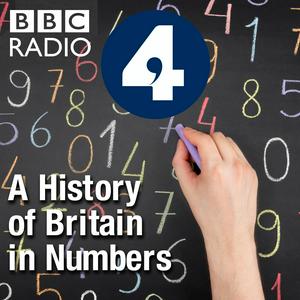
Obtenha a aplicação gratuita radio.pt
- Guardar rádios e podcasts favoritos
- Transmissão via Wi-Fi ou Bluetooth
- Carplay & Android Audo compatìvel
- E ainda mais funções
Obtenha a aplicação gratuita radio.pt
- Guardar rádios e podcasts favoritos
- Transmissão via Wi-Fi ou Bluetooth
- Carplay & Android Audo compatìvel
- E ainda mais funções


A History of Britain in Numbers
descarregue a aplicação,
ouça.





